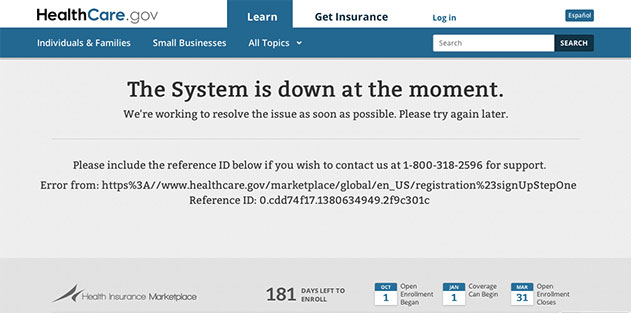CLICHES OF PROGRESSIVISM #16 – Ownership Must Be Tempered by Sharing by Lawrence W. Reed
Progressives have a problem with ownership, especially when it’s yours. The very notion seems to conjure up in their minds an anti-social acquisitiveness, selfishness, and greed. Far more quickly, they come to the defense of “sharing” because it suggests sacrificing ownership for the sake of others. Indeed, the most regressive Progressive is drawn to the idea of common ownership, in which no one owns anything because somehow we all will own and share it equally.
The Progressives’ hostility to ownership is neither well-founded nor consistent. While they have a visceral distaste for private ownership (and busy themselves taxing, regulating, seizing, and redistributing it), they have few problems with state ownership. It’s as if men are devilish with what’s theirs but angelic with what belongs to someone else. This is not a concept that explains life on any planet I am personally aware of.
The fact is, “ownership” as a general concept is never really at issue in any society. It is neither possible nor desirable to construct a society in which people or the material things they create are not “owned.” Either you will “own” yourself or someone else will own you. As far as material things are concerned, somebody must own them, too. Those “somebodies” will be those who either created them, received them as a gift, or traded freely for them, or they will be those who take them by force. There is no middle ground, no “third way” in which ownership is somehow avoided.
Indeed, ownership is both a virtue and a necessity. What is yours, you tend to husband. If it belongs to someone else, you have little incentive to care for it. If it belongs to “everyone”—the nebulous, collectivist approach—then you have every incentive to use and abuse it. That’s why over thousands of years of history, experience continually reinforces this essential axiom: the more the government owns and thereby controls, the less free and productive the people are.
Ownership is nothing less than the right to shape, use, and dispose. Even if you have legal title to something, you wouldn’t think you really owned it if the government told you what you could do with it, how, and when; in that instance, the government would be the de facto owner. In a real sense, ownership is control and the actual owner of anything is the controller.
For thoroughly trashing the resources of any society, no more surefire prescription exists than to take resources from those to whom they belong (the rightful owners) and give them to those who are convinced in the fantasyland of their own minds that they have a better idea of what to do with them. Think “Soviet.” Socialist regimes, which take from some and give to others at the point of a gun, have their cockamamie schemes for how to squander the loot, but they display an infantile ignorance of how to create wealth in the first place.
Much has been made in the past about alleged differences between fascism and communism. Sure, the Nazis invaded Stalinist Russia (after the two had made a deal to squash and divide Poland), but that was a dispute between thieves that proved the old adage that there’s no honor among them. On the question of ownership, the difference was a cosmetic one that ultimately mattered little to the ordinary citizen.
Communists didn’t let you own a factory, and if you did own one, when they came to power you were shot. Fascists often refrained from nationalizing a factory, but if you as the alleged owner didn’t do as you were told, you were shot. Under either system, real ownership was in the hands of the omnipotent State, regardless of what any scrap of legal title paper said.
The myth of “common ownership” only muddies the issue. Public parks are thought of as held in common (“the people’s property”), but that really means that the government owns them, the taxpayers pay the bill, and the public gets to use them according to the rules established and enforced by the government. Some have argued that the post office is another example of common ownership. That would mean that theoretically, each American owns about one-three-hundred-millionth of it, but show up at the counter and try to redeem your share and you might be surprised how fast the response can be.
From the remote but fascinating country of Mongolia comes an ownership story told to me by the country’s current president (as of 2014), Elbegdorj Tsakhia (known by his friends as “E. B.”). He earlier served as Prime Minister twice, and visited me in Michigan between those terms. I asked him during that visit what he was most proud of having accomplished as PM. He said, “I privatized Mongolia’s 25 million yaks.”
Yaks are large, furry cattle that wear their hair in bangs. For decades under communist rule, the poor creatures were owned by the government, which claimed they were “the people’s property.” Their total population hardly budged from the 1920s to the 1990s. E. B. decided that yaks were not a core function of government, so he worked up a formula whereby all of them would be sold to the individual herdsmen. Three years later he was Prime Minister the second time. I visited him in his office in the capital of Ulan Bator and asked him, “What’s the latest on the yaks?” Excitedly, he replied, “Remember when I told you we had 25 million for seven decades? Well, now we have 32 million!”
When it’s your yak, not “everybody’s” yak, wonderful things happen. You have a personal interest in the investment, in the capital value of the asset. You take care of the yak and make more yaks, which you then “share” with more and more people in an endless stream of peaceful, mutually beneficial trades of yak products.
Progressives yak a lot about sharing, but you can’t share it if you don’t produce it and take care of it in the first place. Private, personal ownership of material things we create and trade for is unsurpassed as a source of the wealth that Progressives want to share.
Moreover, we should ask ourselves, “Is it really ‘sharing’ if I have to do it at gunpoint?” I was always taught that sharing was an act of free will. When you give half your sandwich to a friend who forgot to pack his lunch, you’ve shared it. If he threatens to beat you up if you don’t give it to him, “sharing” is no longer the operative term.
So when it comes to this thing we call “ownership,” it’s either you or somebody else. Who should own your retirement savings—you or the government? Who should own your health-care dollars—you, the government, or some third-party payer you’d prefer to avoid? Who should decide where your child goes to school—you the parent or a handful of other parents different from you only by virtue of the fact that they work for the government? Who should decide what charitable activities you support—you or some congressman or bureaucrat who prefers the social welfare department over the Red Cross or your local church?
Those questions should not be answered solely on utilitarian grounds. In a free society, Person A might choose a better school or make a better investment than Person B—a fact that can’t be known for certain in advance. But in any event, that does not mystically grant Person B the right to make Person A’s choices for him. If freedom means anything, it means the right to make your own choices even if you make what others regard as mistakes. When someone argues that we cannot allow people more choices over their retirement, health care, or schools, we should demand they tell us, by what right do they make these decisions for us?
Make no mistake about it: The more someone else controls you or the important decisions that govern your life or the material things that sustain it, the more they own you. We used to call that slavery, and no gauzy, self-righteous calls to “share it” made it any less inhumane.
If you’re a principled and articulate defender of private ownership of property, be ready for some Progressive social engineer to lay a guilt trip on you if he thinks you’re not “sharing” enough. I suspect that the preponderance of Progressives will not be satisfied until their coercion-based policies effectively own the rest of us lock, stock, and barrel.
Own or be owned. Take your pick.
Summary
- Progressives are two-faced when it comes to ownership. They are suspicious of it when it’s private and personal but supportive when it’s politicized and centrally directed.
- Whether it’s people or property, it will be owned. It’s just a matter of whether it’s owned by those to whom it belongs or those who simply want to claim it for some alleged higher cause.
- Private ownership of property is both a virtue and a necessity. Get rid of it and you flush civilization down with it.
- “Common ownership” is largely impractical and meaningless, even destructive.
For further information, see:
“The Economics of Caring and Sharing” by Dwight R. Lee
“Experiments in Collectivism” by Melvin D. Barger
“Little Lessons in Larceny” by Russell Madden
“The Puritan Experiment in Common Ownership” by Gary North
Plus previous Clichés #6 and #9: http://fee.org/publications/page/cliches-of-progressivism
 ABOUT LAWRENCE W. REED
ABOUT LAWRENCE W. REED
Lawrence W. (“Larry”) Reed became president of FEE in 2008 after serving as chairman of its board of trustees in the 1990s and both writing and speaking for FEE since the late 1970s. Prior to becoming FEE’s president, he served for 20 years as president of the Mackinac Center for Public Policy in Midland, Michigan. He also taught economics full-time from 1977 to 1984 at Northwood University in Michigan and chaired its department of economics from 1982 to 1984.
Editor’s Note: An earlier version of this essay appeared in the July/August 2005 issue of The Freeman under the title, “To Own or Be Owned: That Is the Question.” The featured image is courtesy of FEE and Shutterstock.
The Foundation for Economic Education (FEE) is proud to partner with Young America’s Foundation (YAF) to produce “Clichés of Progressivism,” a series of insightful commentaries covering topics of free enterprise, income inequality, and limited government.
Our society is inundated with half-truths and misconceptions about the economy in general and free enterprise in particular. The “Clichés of Progressivism” series is meant to equip students with the arguments necessary to inform debate and correct the record where bias and errors abound.
The antecedents to this collection are two classic FEE publications that YAF helped distribute in the past: Clichés of Politics, published in 1994, and the more influential Clichés of Socialism, which made its first appearance in 1962. Indeed, this new collection will contain a number of essays from those two earlier works, updated for the present day where necessary. Other entries first appeared in some version in FEE’s journal, The Freeman. Still others are brand new, never having appeared in print anywhere. They will be published weekly on the websites of both YAF and FEE: www.yaf.org and www.FEE.
















